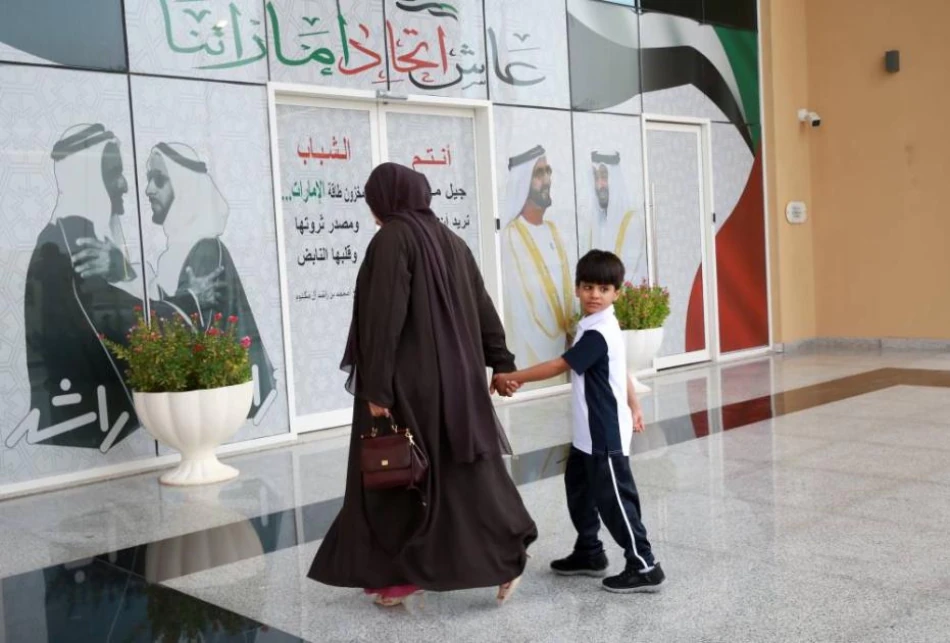
Federal Government Employees Benefit from 'Back-to-School' Policy
UAE Federal Government Pioneers Family-First Workplace Policy with "Back to School" Initiative
The UAE Federal Authority for Government Human Resources has launched a groundbreaking "Back to School" policy for the 2025-2026 academic year, allowing federal employees up to three hours of flexible work time to support their children's educational needs. This Cabinet-approved initiative represents a significant shift toward family-centric workplace policies in the Gulf region, potentially setting a new standard for work-life balance in government sectors across the Middle East.
Policy Details and Employee Benefits
The new policy grants federal employees considerable flexibility during critical educational periods. Workers can adjust their arrival and departure times by up to three hours during the first days of the school year, enabling parents to accompany children to schools, nurseries, and kindergartens. The policy extends beyond the initial school days, permitting employees to attend parent-teacher meetings, school events, activities, and graduation ceremonies through short-term leave requests.
This flexibility operates within existing legal frameworks, ensuring that work operations continue smoothly while acknowledging the fundamental role parents play in their children's educational journey.
Strategic Implications for Government Productivity
Breaking Traditional Workplace Rigidity
The UAE's approach challenges conventional government work structures that have historically prioritized rigid schedules over employee well-being. By formally recognizing parental responsibilities as legitimate workplace considerations, the policy could reduce stress-related productivity losses and employee turnover—costs that often exceed the economic impact of flexible scheduling.
Competitive Advantage in Talent Retention
This initiative positions the UAE federal government as a progressive employer in an increasingly competitive regional job market. As Gulf states compete for skilled professionals, family-friendly policies become crucial differentiators. The policy particularly benefits working mothers, who often bear disproportionate responsibility for children's educational engagement.
Regional Context and Global Comparisons
The UAE's move aligns with broader workplace evolution trends seen in progressive economies. Countries like Denmark and Sweden have long integrated family considerations into workplace policies, while Singapore has implemented similar flexible arrangements for civil servants. However, the UAE's formal codification of school-related flexibility represents pioneering territory for the Middle East.
Unlike private sector initiatives that often depend on individual company cultures, this government-mandated policy creates standardized expectations across federal ministries and departments, potentially influencing private sector practices through demonstration effects.
Economic and Social Impact Analysis
Investment in Human Capital Development
The policy reflects sophisticated understanding of human capital economics. By enabling greater parental involvement in education, the government indirectly invests in future workforce quality. Research consistently demonstrates that parental engagement correlates with improved academic outcomes, suggesting long-term economic returns on this workplace flexibility investment.
Cultural Alignment with Emirati Values
The initiative harmonizes modern workplace demands with traditional Emirati emphasis on family cohesion. This cultural sensitivity could enhance policy acceptance and effectiveness while reinforcing the government's commitment to preserving social values amid rapid economic modernization.
Implementation Challenges and Success Factors
The Federal Authority for Government Human Resources has committed to coordinating with various ministries to ensure optimal implementation through official channels and electronic services. Success will likely depend on middle management buy-in and clear performance metrics that measure outcomes rather than hours worked.
The policy's emphasis on maintaining work quality while providing flexibility suggests a results-oriented approach that could serve as a model for other government sectors regionally. As the UAE continues positioning itself as a progressive, family-friendly destination for international talent, such policies become strategic tools for economic diversification and social development.
Most Viewed News

 Omar Rahman
Omar Rahman






